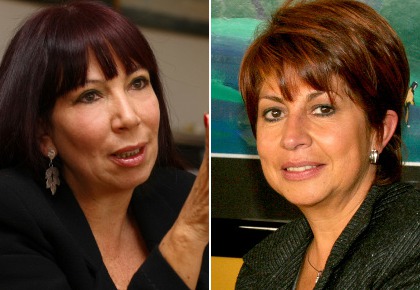The Criminal Chamber of the Colombian Supreme Court announced that it would not pursue criminal defamation charges against a journalist who had written opinion columns critical of the Court.
The Criminal Chamber of the Colombian Supreme Court announced on 27 August 2012 that it would not pursue criminal defamation charges against a journalist who had written opinion columns critical of the Court, reports the Bogotá-based group Foundation for Press Freedom (Fundación para la Libertad de Prensa, FLIP).
FLIP reports that the court had announced at a 23 August press conference that legal action would be initiated against journalist Cecilia Orozco for an opinion column she wrote in El Espectador in which she questioned some of the chamber’s decisions. Additionally, the announcement characterised some of the opinions about the chamber that had been expressed by journalist María Jimena Duzán in Semana magazine as “biased.”
After the Court’s unprecedented announcement that it intended to file libel charges, FLIP condemned the decision and called on it to reconsider, encouraging the members of the chamber to instead participate in a public debate regarding their disagreement with the opinions expressed by Duzán and Orozco. The issues dealt with by the Supreme Court are of interest to the public, FLIP had noted, and public officials are therefore subject to a higher level of public scrutiny. The Inter American Press Association (IAPA) and the Committee to Protect Journalists (CPJ) echoed this sentiment. “It is outrageous that an entire chamber of the Colombian Supreme Court would accuse journalists Cecilia Orozco Tascón and María Jimena Duzán of defamation for opinions they expressed in editorial columns,” CPJ had said, referring to the court’s move as an “act of intimidation against journalists by one of the country’s most powerful bodies.”
In announcing the reversal of its decision on 27 August, the Court said it was doing so “as a way of contributing to the climate of moderation and restraint that the country needs,” reports IAPA. However, the Court reiterated its rejection of the criticism contained in the columns and invited the Colombian press to adopt what it called “self-reflection,” according to the International Press Institute (IPI).
IAPA said it was pleased the court had put the action against Orozco aside, “as otherwise it would have been an abuse of privilege embroiled in a serious conflict of interest.” IPI welcomed the decision, but added: ” . . .we want to make it clear that the threat of criminal charges never should have been on the table. Journalists in a democratic country have the right to criticise and question the actions of their government. Colombia’s highest judicial body, which should be setting a model for the rest of the country by protecting the rights of the media, has instead been spending its time bullying journalists who did nothing but express their opinion.”
In her 22 August column in the newspaper El Espectador entitled “Homage to a Brave and Decent Judge”, Orozco criticised the removal of magistrate Iván Velásquez from his position as chief of the Court’s investigative unit. Orozco referred to the judge, who is known for his probes into links between politicians and paramilitary officers, as the Court’s “star investigator,” according to IAPA. The journalist questioned the Court’s official explanation that the magistrate had simply completed his term, suggesting instead that his removal was the result of pressure from implicated politicians who wanted to derail the ongoing court investigations, reports CPJ. According to IPI, Orozco wrote that fellow justices – the majority of whom she labeled “clientelist, bureaucratic, lethargic, and subordinate to the power of the attorney general” – reshuffled Velásquez because they “cannot have a witness to their complicity.”
In a 19 August column headlined “The New Court”, Duzán criticised the Supreme Court for a recent ruling that upheld the extradition to the United States of a former paramilitary on drug charges rather than make him face trial in Colombia for the massacre of civilians, IAPA reports. The journalist also criticised a series of changes that she said gave deferential treatment to politicians, as they could result in lighter prison sentences for officials convicted of crimes in comparison with regular citizens, according to CPJ.
Both journalists reacted to the court’s harshly worded retort condemning their opinion columns. Orozco had told RCN Radio that she stood by “every comma” in her column, reports CPJ, while Duzán told CPJ “I stand by what I wrote. The court should respond to these problems rather than trying to put columnists on trial.”
In response to the court’s intent to file libel charges, more than 200 people, most of them Colombian journalists, signed a letter addressed to the Criminal Chamber’s judges in support of the two journalists, reports FLIP. “We are all Orozco and Duzán,” the 24 August letter stated, expressing support for the opinions voiced by the journalists. The signatories said they should also be held responsible for having “authored” the articles in question, and urged the judges to promptly address the concerns raised by the two journalists.
FLIP has documented several cases in Colombia in which politicians, military personnel, judges, businessmen and other individuals whose actions affect society in general have filed defamation complaints against journalists when they feel they have been negatively affected by publications that fall within the scope of freedom of expression. In a recent defamation case, FLIP said that the sentencing had contravened national and international jurisprudence and set a dangerous precedent for freedom of expression in Colombia. The organisation pointed out that in a democracy, such as Colombia, the right to express critical or provocative opinions should be protected, particularly in cases involving public figures.



